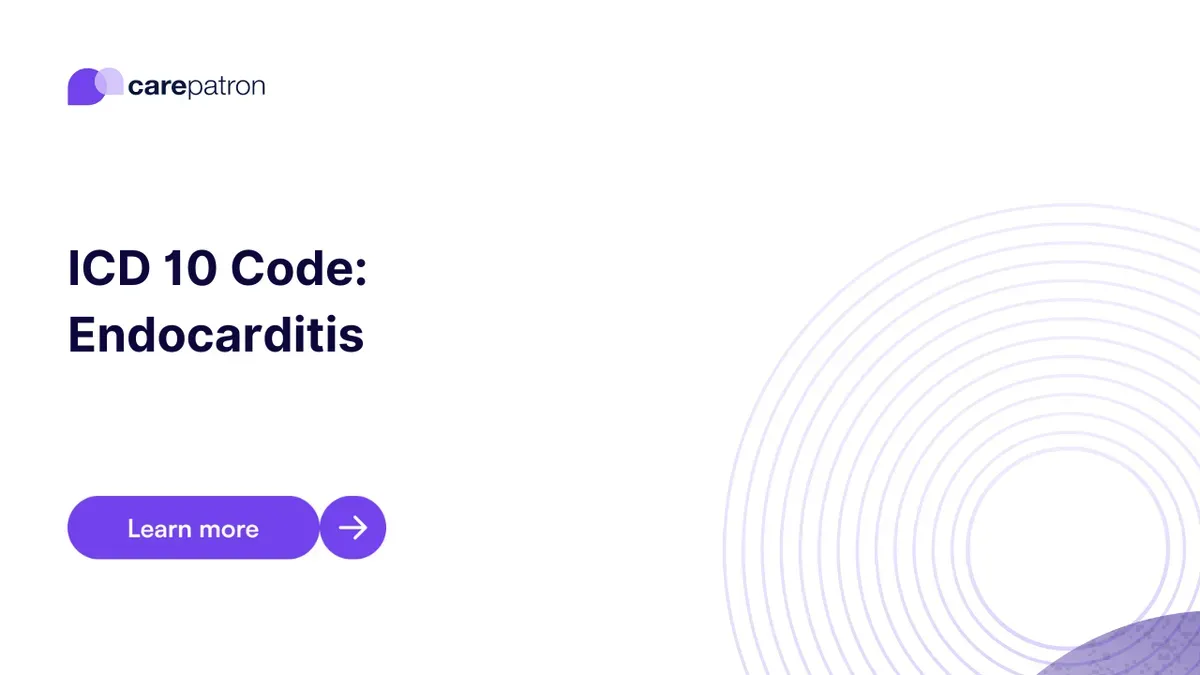
Endocarditis ICD-10-CM Codes
Explore the 2023 guide on Endocarditis ICD-10-CM codes. Learn about the specific codes, clinical descriptions, and billing implications.
Use Code
EHR and practice management software
Get started for free
*No credit card required
Free
$0/usd
Unlimited clients
Telehealth
1GB of storage
Client portal text
Automated billing and online payments
